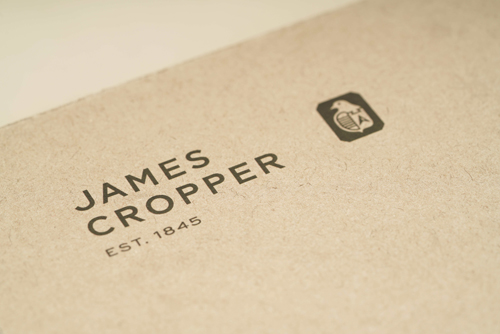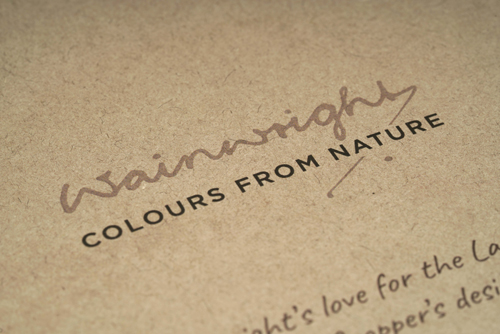James Cropper has launched a coloured paper range using dye derived from plant extract which would have otherwise been wasted. The new ‘Wainwright Colours from Nature‘ range, which launches this month, is the papermaker’s latest in a list of innovations which create value from waste streams. With plant-based dyes more commonly used in the textile industry, the new collection marks one of the first applications to paper; promising market leading environmental credentials without compromise on technical performance.
The first two shades, Limestone and Herdwick Brown, are both derived from rosemary residue, a waste stream in some food production. The rosemary is grown as an annual agricultural crop before the non-edible waste from the plant is extracted and upcycled into the dye, which is added to James Cropper’s 100% FSC® recycled paper.
Designed primarily for the packaging and publishing sectors, extensive research and development work has ensured no compromise on the technical performance of the range. The ‘Wainwright Colours from Nature’ collection offers a bleed-free, rub resistant dye which has lightfastness similar to that achieved using industry standard synthetic dyes.
The colours were created to celebrate James Cropper’s partnership with The Wainwright Prize, an annual literary award for the best UK-based nature and global conservation writing. The colours are inspired by author Alfred Wainwright’s love for the Lake District landscape and James Cropper’s desire to protect it.
Joanne Storey, R&D Programme Lead, James Cropper comments, “Whether it’s used coffee cups, food waste or other pre and post-consumer waste, by repurposing these valuable streams, we continue to support transition to a more circular economy. From the use of renewable materials and low impact manufacturing processes, to producing high quality products that are easy to recycle, we are committed to sustainability at every turn, and our expertise in colour is part of that. We believe it’s the first-time plant-based dyes have been used in modern papermaking; a breakthrough which marks the first step into the development of more natural colour options. We are investigating botanical dyes extracted from a wide variety of origins including plants, shells and fungi; and expect the range to expand significantly.”
The range is available from stock in 350gsm, ideal for presentation packaging, business stationery and invitations. The natural dye technology can also be applied to bespoke projects through James Cropper’s Tailor Made service.





